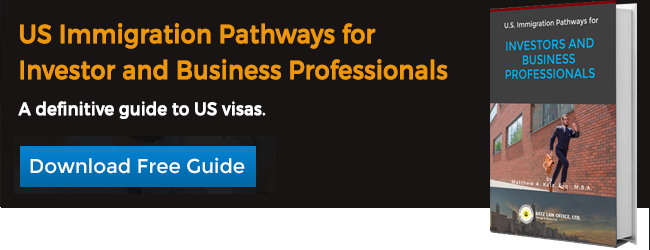
Precisely because the E-2 visa is so widely used, the E-1 is often ignored when it indeed could be a better option for you as an individual or for your business. Below you will find a comprehensive list of what generally the consulates and embassies, or USCIS (if you are currently in the U.S.) will require of you when you apply for the E-1 visa. Please note that this list is not a substitute for a careful review of your documents by a competent, experienced immigration attorney. Another important initial point is to recall is that the E-1 visa can apply to an individual, such as a business consultant, not just to a business comprised of several employees.
Company is owned by treaty country member/s
You must present evidence that your company is indeed owned by treaty country members. At least fifty percent of the company is required to be owned by treaty country nationals. If the company has owners who also have U.S. lawful permanent resident status, these individuals will not count toward this 50%. If a publicly traded company, it will be considered a treaty company if its stock is sold exclusively on that country’s stock exchange that is also the company’s country of incorporation (and is the treaty country).
Nonimmigrant intent
You will also need to document that as the applicant you intend to return to your country of origin after the visa term has expired. There is no right way to show this component, as it is applicant specific. However, typically proof of strong ties to one’s home country and general proof of non-immigrant intent are sufficient, e.g., owning a house in one’s home country, holding ongoing job or business opportunities in one’s home country, ongoing family presence there, etc.
Substantial trade principally with the U.S.
The most important and onerous requirement to obtain an E-1 visa is proof that the company petitioning the worker indeed meets the requirements of 9 FAM 41.51 – namely that the company currently engages in “substantial trade” and that such trade exists “principally” between the U.S. and the treaty member nation. The basic command of the law here is that the trade between the company and its U.S. counterparts sums to more than fifty percent of the company’s international trade activities. There are several important tips I would like to share with you regarding this requirement that may make the E-1 visa an excellent alternative to the E-2 visa for you:
- As I stated above, the E-1 visa is also available to individuals not just to companies, so professionals such as business consultants who have clients in the U.S., may be eligible for an E-1 visa;
- Expenses relating to opening a U.S. branch office do in fact qualify as part of your company’s “international trade” for purposes of qualifying for the E-1 visa;
- The law defines trade as “international exchange of items of trade for consideration between the U.S. and the treaty country.” (See, 22 CFR 41.51(a)(7)) These “items” can include services such as digital, engineering or consulting services, generally if the principal business of the company providing these services is in fact to provide those services.
Documents that might evidence of this trade may include invoices, financial statements, bank statements, and the like.
None of the advice contained in these materials serves as a substitute for individualized legal representation by a licensed attorney with experience in the practice area.





